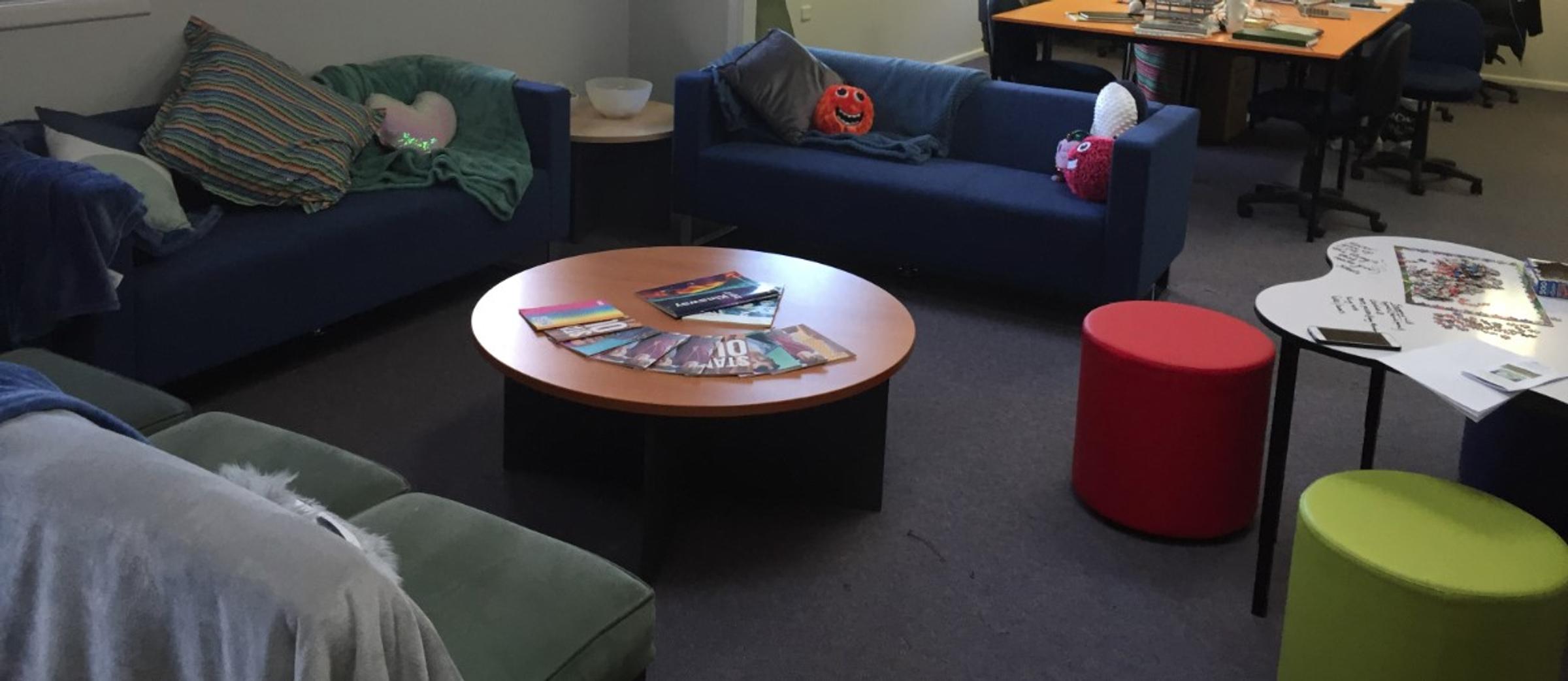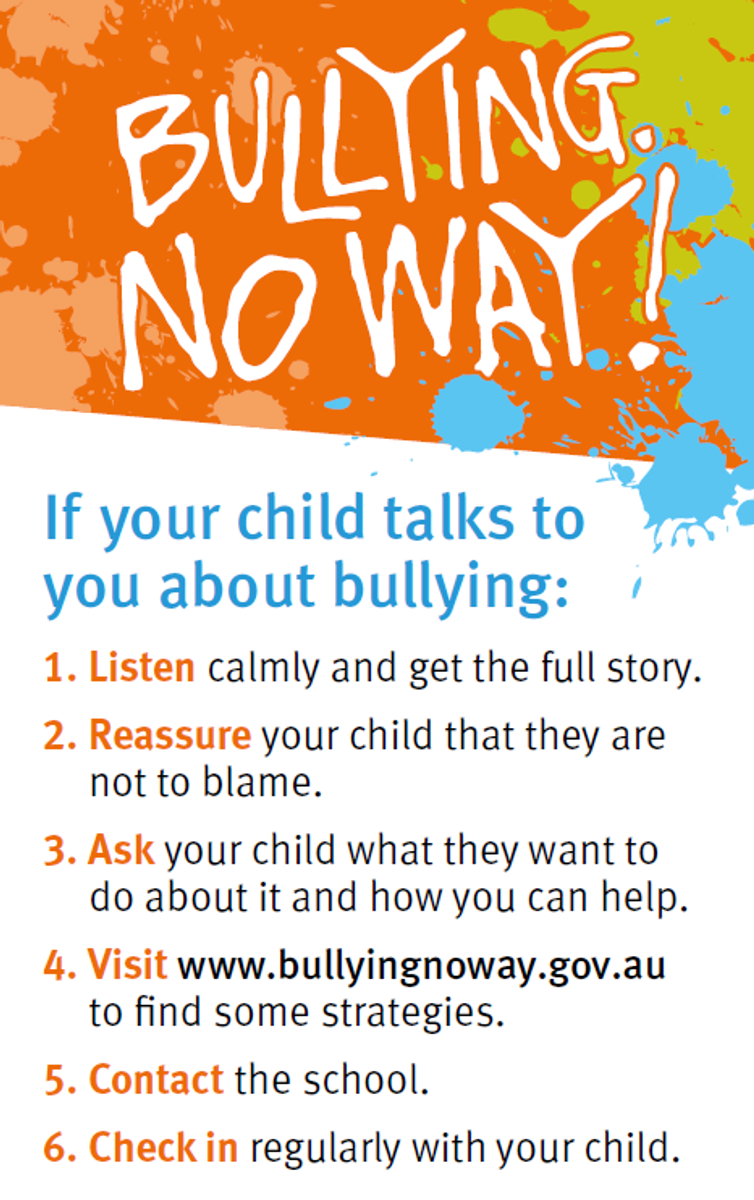Wellbeing

Bullying No Way!
At Bairnsdale Secondary College we aim to create a safe and supportive school community for everyone. All members of the College community play an important role to prevent bullying and to respond effectively if it happens. Stopping bullying involves everyone.
If a student talks to a parent/carer adult about bullying:
- Listen calmly and get the full story. A calm response is important to allow the child to tell you all about the situation. After they’ve told you their story, ask questions to get more details if you need to: who, what, where, when. Although you may feel some strong emotions about your child’s experience, try to keep calm to avoid more distress to your child.
- Reassure your child they are not to blame. Many children blame themselves and this may make them feel even worse. You could say things like, ‘That sounds really hard to deal with. No one should have to put up with that.’ or ‘I’m so glad you told me. You should be able to feel safe at school - that’s not fair at all’.
- Ask your child what they want to do and what they want you to do. A critical part of your response is to avoid jumping in to solve the problem. While it is natural to want to protect your child, helping them to find their own solution is a better option. It helps them feel they have some power in the situation.
- Visit www.bullyingnoway.gov.au to find some strategies. The website has tips and ideas for different bullying situations. One idea is to practise strategies at home to help your child feel more confident.
- Contact the school. Your child may be reluctant for you to do this, so discuss the idea and reassure them that the school would want to know and is able to help. Make an appointment to meet with your child’s teacher and, if you need to, ask to talk with the principal. Contact the school immediately if you have a concern about your child’s safety.
- Check in regularly with your child. Keep the conversation going, It can take time to resolve issues, so check in regularly with your child about their experiences and their feelings. Your ongoing support is important.
Throughout the month of March the College will be focusing on Bullying in all forms ahead of the National Day against Bullying on Friday 20th March. Various student groups will organise fun activities at lunchtime to help spread the message that Bullying in any form is not part of our school culture at Bairnsdale Secondary College.
If you are looking for support for yourself to deal with a bullying situation, you will find ideas on the Bullying. No Way! website. Please feel free to contact the College if you would like to discuss any aspect of our approach to preventing bullying.
Thanks for your support to make Bairnsdale Secondary College a great school for everyone.
Cyber Bullying
If a person bullies someone by sending emails or messages or by saying or doing things online then it’s often called cyber-bullying. Bullying is repeated behaviour which is done on purpose to make someone feel hurt, upset, scared or embarrassed.
Cyber-bullying can happen in lots of different ways. For example it can include sending or posting nasty or embarrassing comments or photos, spreading rumours, making threats, excluding someone online, or pretending to be someone else to make them look bad.
Things to remember about cyber-bullying
- Think very carefully before you say anything about someone online or in an email or message.
- If you are having issues with anyone, try not to react to them by email, text or social networking sites.
- If something is written down or posted online, it’s never private and it’s permanent – even after you delete it!
- If someone cyber-bullies you, try not to retaliate by saying something hurtful back, especially online, as it might make the bullying worse or could be used against you.
- If you are being cyber-bullied by someone at your school, you can speak to a teacher, Hub staff, a Principal or a school counsellor so that the school can help you sort things out.
- Talk to someone. Getting someone’s support can make you feel better, and they can start helping you fix the problem. You can talk to a friend, your parents, or other trusted adult.
Celebrating International Women's Day in Schools
Take time on International Women's Day to think about the extraordinary women in our everyday lives.
Helping children of all ages and all genders find inspiration and courage from diverse women role models is key to education. And teaching children and young adolescents to actively question and openly challenge stereotypes and bias is important because it helps forge a more inclusive world. Below are links to really interesting family friendly videos about International Women's Day:
The following links provide lists of books for young adults about pioneering women and women who have changed the world:
https://www.internationalwomensday.com/ReadingList-PioneeringWomen
https://www.penguinrandomhouse.com/the-read-down/books-about-women-who-changed-the-world

